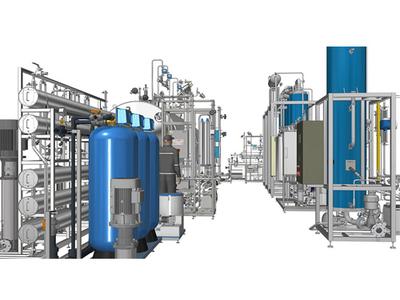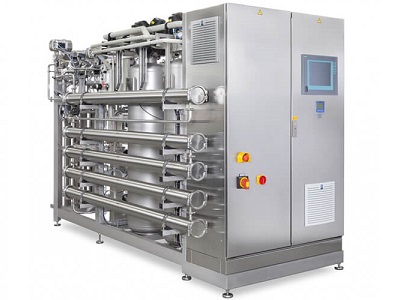The purified water system is an important part of pharmaceutical production. This article introduces the composition of the purified water system, points out the potential risks that need to be considered in the design of the purified water system in pharmaceutical, and provides corresponding solutions to ensure the stability and reliability of the quality of pharmaceutical water.
Purified water is a very critical auxiliary material, which can be used as a process raw material (i.e. used in pharmaceutical production) and also as instrument water for cleaning. Therefore, the quality standards for pharmaceutical water have been strictly regulated by pharmacopoeias of various countries.
This article will explore the key points in selecting a purified water system and how to ensure that the purified water system can stably produce purified water that meets the standard requirements from the perspective of pharmaceutical water use.
The purified water system mainly includes a pretreatment system, a water production system, a storage and distribution system, etc. In order to ensure the stability and reliability of the quality of the final purified water, the design phase is very critical and determines whether the water quality produced can meet the standard requirements.
The water production system is usually divided into: pretreatment+primary reverse osmosis+secondary reverse osmosis; primary reverse osmosis+secondary reverse osmosis+EDI; and pretreatment+ion exchange.
Enterprises should focus on the stability of the produced water quality and equipment economy from two aspects when choosing a water production system.
Mechanical filtration is the most commonly used method in the pretreatment process. However, with the advent of ultrafiltration devices, mechanical filtration has been gradually replaced. If mechanical filtration is used for pretreatment, sand filters, activated carbon filters, and resin softeners are essential as their process combination.
In daily use, alum flocs and particulate matter are generated when adding reagents, which are easily accumulated in sand filters and activated carbon filters. Even after backwashing, they are difficult to completely remove. This not only causes channel blockage but also leads to incomplete pretreatment of the raw water during water production. To solve this, compressed air can be used for backwashing sand filters and activated carbon filters, which can disperse the deposited quartz sand and activated carbon in the filters before backwashing, greatly improving the efficacy of backwashing.
In the operation process of the purified water system in pharmaceutical, the organic matter adsorbed by sand filters and activated carbon filters is prone to the growth and reproduction of microorganisms, resulting in excessive microorganisms in the effluent. This phenomenon can be avoided by adopting suitable disinfection methods (such as ozone disinfection and pasteurization) and regular disinfection of activated carbon filters. For enterprises in northern regions where water temperature is low in winter, we recommend the pasteurization method. A plate-type heater can be installed after the raw water pump, which can serve as a pasteurization heater during disinfection and a raw water preheater during winter production.
Regarding the resin softener, frequent regeneration and cleaning operations are time-consuming and labor-intensive because a large amount of salt is required for resin regeneration, and the dissolved chloride ions after water solubilization will also corrode stainless steel.


